Mitochondria: the cellular power plant
Mitochondria produce Adenosine Triphosphate (ATP). In the cell, the energy in the form of ATP is produced in two ways: in the cytosol as a product of glycolysis, and in the mitochondria as a product of oxidative phosphorylation. You need ATP and you need NAD+/NADH to make that ATP so you feel as though you have enough energy.
Mitochondria produce energy as ATP (adenosine triphosphate), which your body uses to fuel your daily activities. Some cells have more mitochondria than others. Your brain, muscles, and heart cells are full of mitochondria.
Mitochondrial Dysfunction and Disease
Proper mitochondrial functioning is crucial for every cell in a body. Mitochondrial dysfunction, characterized by a loss of efficiency in the synthesis of ATP, is a characteristic of aging, and essentially, of all chronic diseases. Several diseases are characterized by dysfunction of muscular or neural systems or metabolic reactions.
To name a few common diseases associated with mitochondrial dysfunction:
Additionally, metabolic syndrome, heart disease, and diabetes are all associated with mitochondrial dysfunction.
Metabolic Syndrome
Metabolic syndrome is a group of conditions that combine hypertension, hyperglycemia, abdominal obesity, and abnormal cholesterol or triglyceride levels.
Metabolic syndrome greatly increases the risk of cardiovascular disease, stroke, and type two diabetes. There are numerous reports mentioning mitochondrial dysfunction and lower oxidative capacity in patients with Type 2 Diabetes compared with healthy individuals.
The cardiovascular system strongly depends on mitochondrial function. Cardiomyocytes (heart cells) have very high mitochondrial content to produce the necessary ATP, and mitochondrial dysfunction inevitably leads to the development of cardiovascular diseases.
Mitochondrial dysfunction and “Long COVID”
Mitochondrial dysfunction plays a significant role in the inflammatory response in acute human pathologies like COVID. “Long haul COVID” symptoms often include:
-
- nagging fatigue
- trouble recovering from activity
- muscle
- joint discomfort
Mitochondrial Dysfunction & Diseases of Aging
There is now increasing evidence of mitochondrial dysfunction in Alzheimer’s Disease, Parkinson’s Disease.
Putting diseases and aging to the side: you want your mitochondria working at full strength to keep your energy levels up, your brain sharp, and your muscles and heart at their peak performance.
Mitochondrial health practices
Diet
Eating an anti-inflammatory diet is one of the easiest ways to improve mitochondrial function. Polyphenol-rich foods are high in healthy mitochondrial-boosting polyphenols. Foods rich in Polyphenol include:
-
- berries
- purple cabbage
- oregano
- cocoa powder
- nuts
- flax seeds
- olives
- coffee and tea
- many fresh green vegetables
Fasting
Using intermittent fasting methods such as timed eating and intermittently “going keto” are also mitochondrial boosters.
Stimulating Heat Shock Proteins
Heat shock proteins produced by extreme cold or extreme heat are great for your mitochondria. Cold exposure is an easy way to give your mitochondria a boost.
Studies have demonstrated benefits with “ice jackets”, facial submersion, and ice baths—even cryotherapy tanks and “ice swimming.”
Based on what I personally find tolerable and affordable, you can get enough of a boost by doing the following: at the end of your daily hot shower, just turn the temperature cold for 30 seconds. It is mostly quite invigorating!
Yoga and Meditation
Meditation and yoga may also boost your mitochondrial output.
Light Exposure
Ten minutes of direct sunlight is great for a burst of mitochondrial activity.
Conversely, most data suggest that fluorescent lighting puts a damper on ATP production and mitochondrial biogenesis.
The data is rather murky when it comes to EMFs, blue-blocking glasses, and so on, but it’s something to watch, as there seems to be some correlation between better health and less high-level EMF exposure, as well as less blue light exposure.
Exercising For Mitochondrial Health
Many types of exercise are mitochondria-healthy. Walking is great. Running is great. Weight training is great.
Yet, the very best type of exercise for your mitochondria is high-intensity interval training. This doesn’t need to be complicated but do get medical clearance if this is a new activity for you.
The Best Supplements to Improve Mitochondrial Function
I see people perk right up within 24 hours of proper mitochondrial supplementation. If someone has a chronic and/or fatiguing illness like COVID or are just suffering from age-related mitochondrial failure, supplementation absolutely works. It sure beats energy drinks which end up causing adrenal issues and potentiating energy problems.
Here are the mitochondrial supplements that have been studied and proven effective.
Co-Q 10
CoQ10 is an essential electron carrier in the mitochondrial respiratory chain. CoQ10 can be found in both oxidized (ubiquinone) and reduced (ubiquinol) forms, and the conversion between these oxidized and reduced states allows it to act as a cofactor of enzymatic reactions via the transfer of electrons.
Over ten well-done studies show that supplementation with this vitamin- like antioxidant compound in individuals with reduced CoQ10 levels results in increased energy production and reduced fatigue.
The most dramatic results are in those individuals with degenerative diseases. Here are some examples:
In studies using Alzheimer’s disease models, CoQ10 administration significantly delays brain atrophy and characteristic β-amyloid plaquing.
During a 4-month clinical study on around 100 Alzheimer’s patients who took an oral mixture of vitamins E, C, CoQ10, and α-lipoic acid, the group receiving supplementation showed significant reductions in oxidative stress markers and subsequent DNA damage.
Individuals with Parkinson’s disease tend to show increased levels of oxidized (and by definition: damaged) CoQ10. They also have significant increases in markers of oxidative stress and damage in their brains, which is partially reversible with CoQ10administration.
One last important clinical note: recall that the heart is filled with mitochondria which are partially powered by CoQ10. If you are taking a statin drug, please be aware that they deplete your body of CoQ10, so supplementation is a must.
We recommend 200mg of CO10 Daily.
Alpha-lipoic Acid
ALA is a potent fat and water-soluble antioxidant vitamin. It is also a metal chelator (helping to remove iron, copper, mercury, and other heavy metals). It acts as an anti-inflammatory supplement.
Clinically, α-lipoic acid is used mostly to help treat complications associated with diabetes such as neuropathies and vascular (blood vessel) complications. It also improves cognitive (brain) and mitochondrial function, adding to the evidence linking oxidative damage to mitochondria and cognition.
The use of α-lipoic acid for chronic fatigue syndrome (CFIDS) has not yet been studied in controlled clinical trials.
It is widely used in “fatigue regimens” to support mitochondrial function and reduce oxidative stress.
I recommend R lipoic acid (more bioavailable form) 100mg-200mg or a higher dose of standard alpha lipoic acid (Standard ALA is 500mg to 1000mg daily) for approximately the same results.
Acetyl-l-Carnitine
Acetyl-l-carnitine is a naturally occurring fatty acid transporting amino acids. L-carnitine supplementation has long been studied and then used in many mitochondrial dysfunction disorders.
These disorders are also characterized by low concentrations of serum l-carnitine levels such as heart disease, diabetes, kidney disease, and overwhelming infections.
An important cellular longevity function of l-carnitine has been to increase the rate of mitochondrial oxidative phosphorylation (ATP production) that declines with age.
A study where old rats were fed acetyl-l-carnitine resulted in the reversal of age-related decreases in l-carnitine levels, an increase in fatty acid metabolism, and an increase in mitochondrial activity.
Acetyl-l-carnitine also reverses the age-related decline in muscle mitochondria and can be effective in recovery for weightlifting-based exercise
Clinical studies show that L-carnitine supplementation may also be useful in alleviating fatigue symptoms in hypothyroid patients, especially in those younger than 50 years and those who have hypothyroidism after thyroidectomy for thyroid cancer.
Note: L-carnitine is the nomenclature used for many clinical studies, but due to l-carnitine’s ability to increase TMAO, experts suggest that all human supplementation be done with acetyl-l-carnitine.
Acetyl L-Carnitine dosing is 500mg to 1000mg daily, consider dosing at 1000mg while recovering from COVID
D-ribose
We know that D-ribose has documented positive mitochondrial effects for those who are genetically d-ribose deficient.
It’s a popular bodybuilding supplement which “hardcore” bodybuilders credit as being helpful with their muscular fatigue and recovery of ‘your mitochondria/cells’.
Studies have looked at neurodegenerative diseases such as Multiple Sclerosis and ALS with promising results.
D-Ribose Dosing is typically 5 grams per day, add this as a workout enhancer and for post recovery of COVID
Additional supplements with promise: NAD
NAD is now the big news, thanks largely to the research by Dr. David Sinclair and his best-selling book, “Lifespan.” The conversion of NAD+ to NADH, and vice versa, are essential reactions in creating ATP.
Recall that ATP is cranked out by mitochondria and gives cells (and you) energy. Therefore, NAD and its substrates are crucial for cellular energy, mitochondrial biogenesis—and it turns out, cellular longevity
Oral NADH supplementation can reduce symptoms in patients with chronic fatigue.
One study on patients with chronic fatigue syndrome treated participants with micro-encapsulated, oral NADH or a placebo for a month’s time. 8 of 26 study participants (about 1/3) responded positively with increased well-being and energy levels to the NADH compared with 2 of 26 (8%) in the placebo group.
NAD will stimulate the SIRT1 pathway, which is notably dysfunctional in those with metabolic syndrome, diabetes, and more.
When you stimulate the SIRT1 pathway, you lower leptin levels, making it again possible to lose weight, improve blood sugar, cholesterol, and triglyceride levels, and in fact, all aspects of metabolic syndrome.
Taken orally, NMN (nicotinamide mononucleotide) is rapidly absorbed and converted to NAD+.
In numerous studies, supplementation with NMN increases NAD+ biosynthesis, suppresses age-related fatty tissue inflammation, enhances insulin secretion and its action, improves overall mitochondrial function, and in the brain, it improves mitochondrial as well as neuronal function.
NAD or NMN dosing is a liposomal prep of 50mg liquid per day.
NAC
Studies are increasingly showing that mitochondrial illnesses are fueled by oxidative stress, implicating the use of antioxidants such as natural vitamin E and NAC (the precursor to glutathione) as well as glutathione as additional treatment considerations.
We know that the sirtuin pathways are boosted by resveratrol and ECGC-green tea extract, implying mitochondrial benefit. Branched-chain amino acids, vitamin D, and creatine are all pro-mitochondrial health supplements as well, despite being poorly studied for this issue.
Finally, there is emerging data for mitochondrial health with berberine, magnesium threonate, selenium, and even immune-boosting melatonin. B vitamins are likely involved as well.
It appears that the more useful a supplement has been proven to be (vitamin D as a prime example), the less it is studied for other, more complete benefits.
NAC dosing is 1200mg BID for COVID to promote an anti-inflammatory and enhance immune response.
Final Words
In any good health regimen, you want to eat an anti-inflammatory diet and take a few supplements.
It makes sense to take vitamin D and Magnesium for many reasons, including mitochondrial health.
I like D3 with K2 in a dose of 2000-5000IU per day and Magnesium glycinate or citrate 400mg to 800mg at night. Magnesium is a potent anti inflammatory, helps with cramps, aids in relaxation/sleep and helps prevent constipation.
If you have any questions or concerns, be sure to schedule an appointment at Blue Sky MD Health with your primary care provider.





